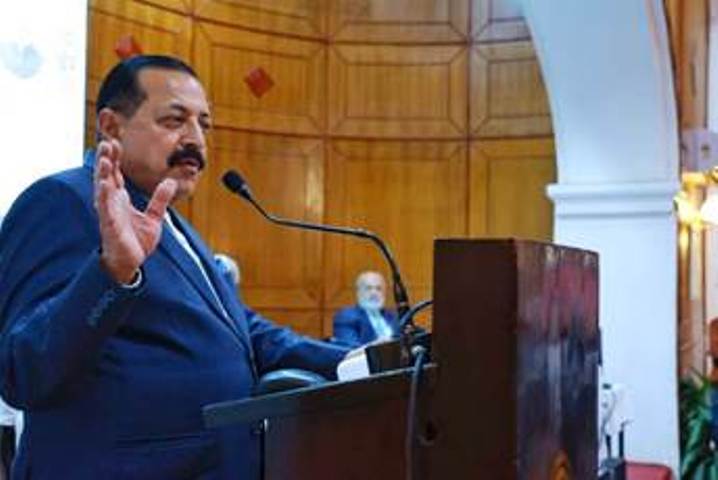Union Minister of State (Independent Charge) for Science and Technology, Earth Sciences, and several other departments, Dr. Jitendra Singh, addressed the National Biopharma Mission (NBM) Conclave at the Dr. Ambedkar International Centre, marking the fifth anniversary of the mission. Dr. Singh emphasized that the Bio-Economy and Space Economy are pivotal to India’s future growth, underscoring the achievements of the NBM and its impact on India’s biopharmaceutical sector.
The NBM, launched with a total cost of US$ 250 million—50% co-funded by the World Bank—aims to accelerate the development of bio-pharmaceuticals through industry-academia collaborations. It has supported nearly 150 organizations and 300 MSMEs, contributing to a remarkable 13-fold increase in India’s bio-economy over the past decade, growing from $10 billion in 2014 to over $130 billion in 2024. The sector is projected to reach US$300 billion by 2030.
Dr. Singh highlighted several notable achievements of the NBM, including the development of India’s first MRI scanner, the DNA vaccine ZyCoV-D for COVID-19, and the country’s first injectable non-insulin antihyperglycemic biosimilar for type 2 diabetes. He pointed out that the mission has established 21 shared infrastructure facilities for research and biomanufacturing, which were also used for COVID vaccine trials. These facilities have been instrumental in advancing India’s biopharmaceutical capabilities and saving time and costs.
The mission has also supported over 200 grantees across three main domains: vaccines, biotherapeutics, medical devices, and diagnostics. It has introduced more than 18 successful products to the market, including vaccines and diagnostic kits. Additionally, seven technology transfer offices have been set up nationwide to support intellectual property management and skill development, organizing over 450 IP awareness campaigns and licensing 25 technologies to industry.
Dr. Singh described the NBM as a “game changer,” making India’s biopharma sector globally competitive and addressing unmet medical needs. He noted that the World Bank has recognized the mission as a "hidden jewel" in its portfolio. He emphasized that early industry linkage and broad resource utilization are crucial for the success of startups, which should not be confined to IT.
The Minister also discussed the Genome India Flagship Programme, which aims to sequence 10,000 genomes and is expected to shape future healthcare strategies both therapeutically and prophylactically. Dr. Singh affirmed that PM Modi’s vision has empowered the Department of Biotechnology and BIRAC to strengthen the healthcare ecosystem, positioning India as a leader in preventive healthcare.
In closing, Dr. Singh expressed his commitment to supporting ongoing initiatives with vigor and assured continued backing for the NBM’s efforts to enhance India’s biopharmaceutical landscape.











